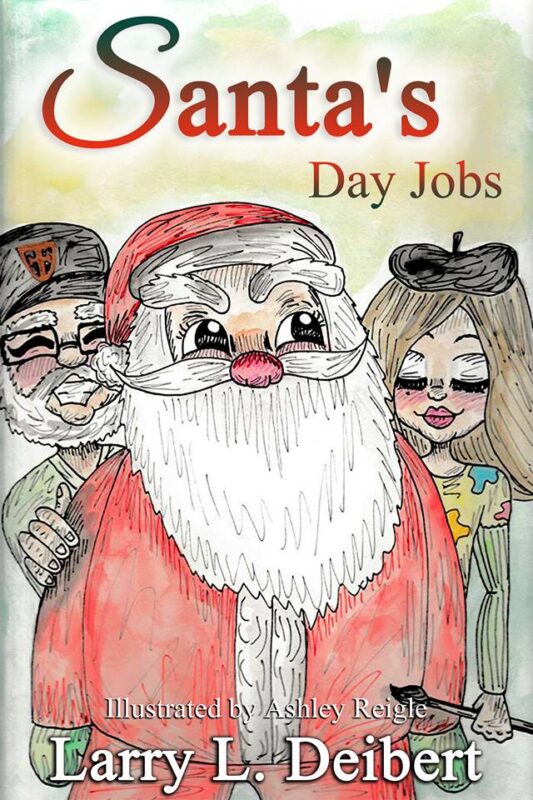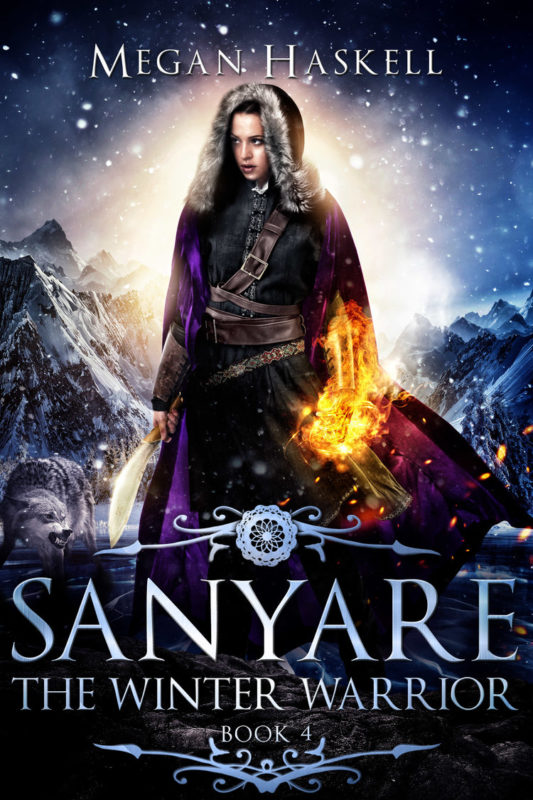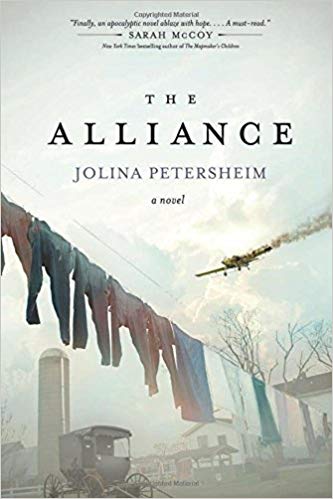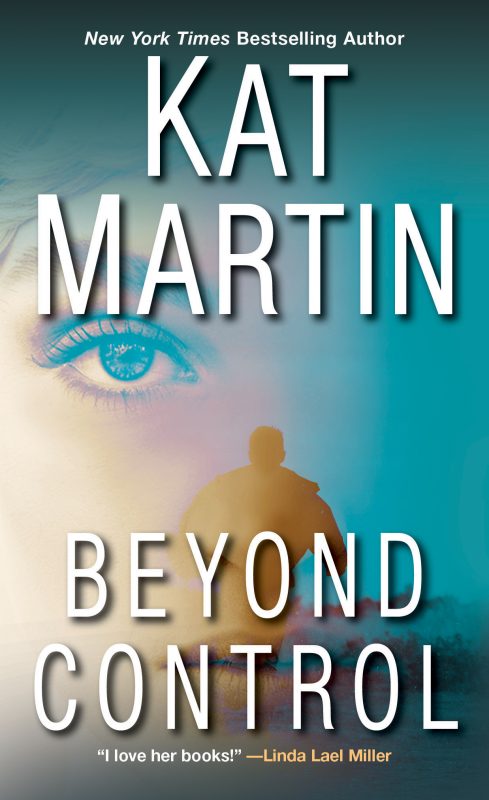Guest Post: What’s love got to do with it?
May 24, 2008 by Marianne H. Donley in category Archives tagged as HarlequinIsabel Swift, Editor Emeritus, Harlequin
http://isabelswift.blogspot.com/
When I was an acquiring editor for series romances at Silhouette , I was always surprised at encounters with writers when they’d announce they’d sold a project I’d turned down with a tone of glee at having proved me wrong. I think I startled them by my enthusiastic congratulations!
So if an editor’s role isn’t delighting in crushing dreams and chagrin at having let a good one get away, what is it?
My goal as a series editor was to find content —stories that I believed would appeal to the audience I was acquiring for. Not what I personally liked or disliked, but work I thought would deliver a satisfying experience to the readership.
It is also helpful to like the work, because tapping into your emotional response can be part of your assessment tools as an editor. If you don’t personally enjoy the work, you have to rely more on the intellectual aspect of your editorial judgment.
But the elements you need to remember in your assessment are:
1. What is the story trying to achieve/deliver?
2. Does it work—and do I, as a reader, care?
3. Who is your reader?
4. Do you think this story will deliver satisfaction to them?
Not necessarily in that order. And while series is a unique and remarkable animal in the publishing menagerie, I think most of these points are relevant for editors in general.
My job meant I needed to pay attention to my readers—to hear when she said, but especially observe what she did (often two very different things). Our reader—the marketplace—is a constantly moving target. Just as most series authors started as or became readers, the same goes for editors. It’s easier if you have an understanding of trends and can respond with a gut feel. But as an editor, you have to respond with your head as well as your heart.
Some situations—a new direction or line launch, the strength and skill of an author, a marketplace or demographic trend, single titles to a varying degree—can offer more scope for experimentation. Especially in series, though elsewhere as well, a reader can be surprised, amazed, intrigued…but must not be disappointed. Not in terms of delivering on the promise—overtly made or subtly implied—in the distribution, choice of format, packaging, promotion, past experience with the author.
While series is often seen as more limited in scope than a stand-alone single title, authors have experimented with remarkable things—aliens, paranormal, magic, the list could go on—and remained commercially viable. Incorporating elements that a single title author might find hard to include without being established—and willing to risk a drop in sales if the experiment doesn’t work.
As readers, we all bring expectations to opening a book. My goal as an editor was to ensure the story I acquired would deliver on those expectations.
And just getting to that final reader means being able to clear a number of gates and gatekeepers. An acquiring editor usually needs to convince other editors of the strength of the story and have them share the positive assessment. If it’s a significant acquisition, she may need to get other departments on board—sales, marketing, art, publicity—as they will need to be committed to developing the convincing selling package and story to take the material to market. Now the book advocate team will need to collectively convince the sales force that they have the “weapons†they need to convince the booksellers and distributors in turn that they should take the title.
The editor is only the first of a long series of people that must be convinced to take a chance on the title, spending time and money and rack space to make it available to a reader.
Harlequin and Silhouette series romances are amazing because they are not sold in individually but as a series, thus allowing a remarkable opportunity for writers to find their voice—within series parameters—to experiment, to understand what is working/not working with the readership without the pressure to succeed and grow on every title that faces every stand-alone single title. Series can allow writers to perfect their craft—and one of the key and universal elements of storytelling: to create characters we care about.
And in response to that cranky turned-down-now-acquired author, sometimes an editor is wrong in her assessment. Their assumptions about an audience’s interest can be off, and the market turns out to be much broader than past experience would indicate. But also the project may just not be right for the readership that editor is acquiring for, like a strong, but mis-cast actor.
True, you can occasionally edit a square peg into a round hole. But it’s better for that peg to find a square hole. An editor’s role is juggling all this and more.
But there is always the love of storytelling that drives us—of finding a great story and working to make sure it will reach an appreciative audience. I’m delighted when a story finds the right home—with any of the many Harlequin imprints , or somewhere else.
I love when that happens!
Advice to Myself as a Newbie Author
May 22, 2008 by A Slice of Orange in category Archives tagged as Advice to Myself as a Newbie Author, Ann Carberry, Kathleen Kane, Maureen Child, Sarah Hartby Shauna Roberts
http://ShaunaRoberts.blogspot.com
Today’s Guest: Maureen Child
Maureen Child is the author of more than ninety romance novels and novellas and has been nominated for a Rita five times, including in 2008 for Christmas Cravings (Silhouette Nocturne). More Than Fiends (NAL) is a Bookseller’s Best Finalist and a National Reader’s Choice Award finalist.
Silhouette Desire recently released three books in Maureen’s “Kings of California†series about millionaire brothers: Falling for King’s Fortune (May), Marrying for King’s Millions (April), and Bargaining for King’s Baby (March).
Maureen, if you could travel back in time to before you were first published, what advice would you give yourself?
 When I was a newbie, I was ready, willing, and eager to hear advice. All advice. Not to say I always took that advice, but I did listen.
When I was a newbie, I was ready, willing, and eager to hear advice. All advice. Not to say I always took that advice, but I did listen.
I remember watching the published members of OCC heading off to their PAW meeting every month and wanting to be a part of that crowd so badly I could taste it. I thought if I could just be published, everything would fall into place. Then one of our members, Rita Rainville, gave me some advice. She said, “Being published doesn’t mean your problems go away—it just means you have different problems.â€
True, but even back then, I remember thinking—I’d rather have those problems, thanks!
So, if I could reach back in time to my newbie self, I’d tell me to listen up and make notes!
1. Ask questions. Don’t pretend you already know all the answers. Don’t make decisions when you don’t have all the information. Don’t assume your agent is going to make the right choice for you. Ask.
2. Don’t be afraid to try something new. Yes, you have to write to the market if you want to be published, but just because you’ve written ten Westerns doesn’t mean you can’t try a Regency or a contemporary. If your current house isn’t interested, look around. Try another publishing house. No one says you can only write for one house.
 3. Know when to pack up and move on. This goes for agents as well as publishing houses. Fear is a big factor in the writing world. And we all get comfortable and sometimes stay too long at the party because the unknown is just terrifying. We’re sure that the agent or editor is going to come through for us if we just wait long enough. Sometimes they do. But sometimes, it won’t get better until you find the courage to step out of the comfort zone.
3. Know when to pack up and move on. This goes for agents as well as publishing houses. Fear is a big factor in the writing world. And we all get comfortable and sometimes stay too long at the party because the unknown is just terrifying. We’re sure that the agent or editor is going to come through for us if we just wait long enough. Sometimes they do. But sometimes, it won’t get better until you find the courage to step out of the comfort zone.
4. Be dependable. If an editor knows she can count on you to come through for her, she’s going to be more willing to work with you. Trust me on this. Editors have to deal with hundreds of people. If she’s got the choice between working with a flake who consistently lets her down while playing the diva or working with a professional writer who always makes her deadline . . . well, whom would you rather work with?
5. Find friends you can count on. When the writing world gets ugly—and believe me, it does, regularly—you’re going to need a few close friends to pull you through. Be loyal. Don’t tell tales. Celebrate their successes and let them celebrate yours. Sometimes the only thing that holds you together is the voice on the other end of the phone. Treasure your friends. You’re going to need them. Life’s too short for competition. The only writer you’re really up against is yourself.
6. Keep reading. So many times, you get sucked into your own fictional world that you forget other writers are out there, making up fabulous stories. Reading those books is what brought you to this place, remember? Don’t lose the joy of reading.
7. Don’t be afraid to say no. Looking back, there were plenty of times I zigged when I should have zagged. We all make the best decisions we can at the time, but try to slow down. To look at the offer from all sides. Make sure it’s going to be the road you want your career to take.
8. Rejection isn’t permanent. My first book, a Western historical, was rejected all over New York City for a solid year. Everyone loved it, but no one had room for it. On the second round of submissions, the first house that had rejected it before made an offer, and I hadn’t changed a thing. Different editor, different day, different outcome.
9. Get out from behind the computer! I don’t care what you do. Go to the mall, the movies, the beach, the mountains. Sit in the backyard and laugh at the neighbors. But don’t lose touch with the life you’re writing about. If you never see beyond your computer screen, your stories are soon going to sound just as flat as that screen.
10. Give every book you write everything you’ve got. I work as hard now on book number 102 as I did on book number 1. I still worry about getting it ‘right,’ whatever that is.
Trust yourself and never give up. For all the ups and downs, writing is the best job in the world, and you’re a lucky newbie to be heading down this road.
✥✥✥✥✥
To learn more about Maureen, please visit her Website at http://www.MaureenChild.com or her blog at http://MaureenChild.blogspot.com. Her newest book, Falling for King’s Fortune, is available at all major bookstores and can be ordered online from Amazon.com and Barnes & Noble.
Love is…
May 21, 2008 by A Slice of Orange in category Archives tagged as The Lone WriterA friend of mine sent me a LINK to Dear Abby this week. (I’m not sure how long her links remain active so read it while you have the chance). The headline “Everyday Kindness is Secret of Marriage Full of Romance” definitely grabbed me. There are five letters and every single one of them made me smile.
We are so fortunate as writers to deal with fantasy. Did your spouse act like a jerk and forget to load the dishwasher? Well your hero not only does the dishes but cooks a gourmet meal as well. Take that! Very few things are unfixable in romance-author land.
I love those grand gestures in romance novels. The Prince who is willing to give up his title for the woman he loves. The CEO who suddenly decides to stop working 80 hour weeks because he has fallen in love and making a couple billion more dollars no longer seems as important. The girl who is unlucky in love but finally manages to snag Mr. Darcy.
Those all make for great stories but I don’t think real romance is about jewelry and grand gestures. Real romance is the little things.
Am I tired at the end of a long day? Mr. Perfect will bring me a bowl of spaghetti and sit through a chick flick on DVD. It’s such a little thing but it’s so important to me. Maybe when we go to bed that night he’ll forget to put his socks in the hamper (a pet peeve of mine), but I’d be willing to let that go for once because that’s just him and he made a miserable day bearable. That’s reality and I love it.
Do you agree? What does “love” mean to you?
Desperation — and Inspiration!
May 19, 2008 by A Slice of Orange in category Writer on the Verge by Kate Carlisle tagged as Kate Carlisle, Writer on the VergeBy Kate Carlisle
The best of intentions get blown into the wind like a dandelion sometimes. Take this blog, for instance. Earlier this week, I had every intention of getting up bright and early this morning and posting a blog all about the need for meeting our deadlines.
How ironic.
Instead, yesterday morning I drove 140 miles out to the desert to take care of some things for my mother. I spent all day and part of this morning out there, then drove back home–and only then did I remember that I had a blog to write.
Ah, well. Anyway, instead of my brilliant and passionate spiel about meeting deadlines, I’ll simply make everyone’s day and post a photo of the man who inspired me as I wrote the hero in my new mystery series. My character is a former British Commander turned security agent. With that sort of background, who else could inspire me more than … well, you know.
 So here’s a little inspiration for the remainder of your Sunday afternoon.
So here’s a little inspiration for the remainder of your Sunday afternoon.
Cheers!
Kate Carlisle writes the Bibliophile Mysteries for NAL. Watch for the first book in the series, HOMICIDE IN HARDCOVER, in February 2009.
The Write Way………..
May 17, 2008 by A Slice of Orange in category The Write Way by Maureen Child tagged as Maureen Child, The Write Way ing that somewhere out there, readers are enjoying MY books as much as I’m enjoying everyone else’s.
ing that somewhere out there, readers are enjoying MY books as much as I’m enjoying everyone else’s.Maureen Child is the author of more than 100 romance novels, but at the moment, she’s sitting in front of her fan, pretending she’s in Mayfair………
Affiliate Links
A Slice of Orange is an affiliate with some of the booksellers listed on this website, including Barnes & Nobel, Books A Million, iBooks, Kobo, and Smashwords. This means A Slice of Orange may earn a small advertising fee from sales made through the links used on this website. There are reminders of these affiliate links on the pages for individual books.
Search A Slice of Orange
Find a Column
Archives
Featured Books
SANYARE: THE WINTER WARRIOR
Her choice won the war, but may have cost her everything…
More info →THE ALLIANCE
When Leora Ebersole sees the small plane crash in her Old Order Mennonite community, she has no idea it's a foreshadowing of things to come.
More info →BEYOND CONTROL
Present Danger—When Victoria Bradford got engaged, she told herself to give love a chance. Six months later, she's on the run from her angry, abusive ex-fiancé with her four-year-old daughter and nowhere to go.
More info →FALL OF BLAZE
The Darkworld turns ever more slowly, and its skies grow bleaker by the hour.
More info →Newsletter
Contributing Authors
Search A Slice of Orange
Find a Column
Archives
Authors in the Bookstore
- A. E. Decker
- A. J. Scudiere
- A.J. Sidransky
- Abby Collette
- Alanna Lucus
- Albert Marrin
- Alice Duncan
- Alina K. Field
- Alison Green Myers
- Andi Lawrencovna
- Andrew C Raiford
- Angela Pryce
- Aviva Vaughn
- Barbara Ankrum
- Bethlehem Writers Group, LLC
- Carol L. Wright
- Celeste Barclay
- Christina Alexandra
- Christopher D. Ochs
- Claire Davon
- Claire Naden
- Courtnee Turner Hoyle
- Courtney Annicchiarico
- D. Lieber
- Daniel V. Meier Jr.
- Debra Dixon
- Debra H. Goldstein
- Debra Holland
- Dee Ann Palmer
- Denise M. Colby
- Diane Benefiel
- Diane Sismour
- Dianna Sinovic
- DT Krippene
- E.B. Dawson
- Emilie Dallaire
- Emily Brightwell
- Emily PW Murphy
- Fae Rowen
- Faith L. Justice
- Frances Amati
- Geralyn Corcillo
- Glynnis Campbell
- Greg Jolley
- H. O. Charles
- Jaclyn Roché
- Jacqueline Diamond
- Janet Lynn and Will Zeilinger
- Jeff Baird
- Jenna Barwin
- Jenne Kern
- Jennifer D. Bokal
- Jennifer Lyon
- Jerome W. McFadden
- Jill Piscitello
- Jina Bacarr
- Jo A. Hiestand
- Jodi Bogert
- Jolina Petersheim
- Jonathan Maberry
- Joy Allyson
- Judy Duarte
- Justin Murphy
- Justine Davis
- Kat Martin
- Kidd Wadsworth
- Kitty Bucholtz
- Kristy Tate
- Larry Deibert
- Larry Hamilton
- Laura Drake
- Laurie Stevens
- Leslie Knowles
- Li-Ying Lundquist
- Linda Carroll-Bradd
- Linda Lappin
- Linda McLaughlin
- Linda O. Johnston
- Lisa Preston
- Lolo Paige
- Loran Holt
- Lyssa Kay Adams
- Madeline Ash
- Margarita Engle
- Marguerite Quantaine
- Marianne H. Donley
- Mary Castillo
- Maureen Klovers
- Megan Haskell
- Melanie Waterbury
- Melisa Rivero
- Melissa Chambers
- Melodie Winawer
- Meriam Wilhelm
- Mikel J. Wilson
- Mindy Neff
- Monica McCabe
- Nancy Brashear
- Neetu Malik
- Nikki Prince
- Once Upon Anthologies
- Paula Gail Benson
- Penny Reid
- Peter Barbour
- Priscilla Oliveras
- R. H. Kohno
- Rachel Hailey
- Ralph Hieb
- Ramcy Diek
- Ransom Stephens
- Rebecca Forster
- Renae Wrich
- Roxy Matthews
- Ryder Hunte Clancy
- Sally Paradysz
- Sheila Colón-Bagley
- Simone de Muñoz
- Sophie Barnes
- Susan Lynn Meyer
- Susan Squires
- T. D. Fox
- Tara C. Allred
- Tara Lain
- Tari Lynn Jewett
- Terri Osburn
- Tracy Reed
- Vera Jane Cook
- Vicki Crum
- Writing Something Romantic
Affiliate Links
A Slice of Orange is an affiliate with some of the booksellers listed on this website, including Barnes & Nobel, Books A Million, iBooks, Kobo, and Smashwords. This means A Slice of Orange may earn a small advertising fee from sales made through the links used on this website. There are reminders of these affiliate links on the pages for individual books.










































